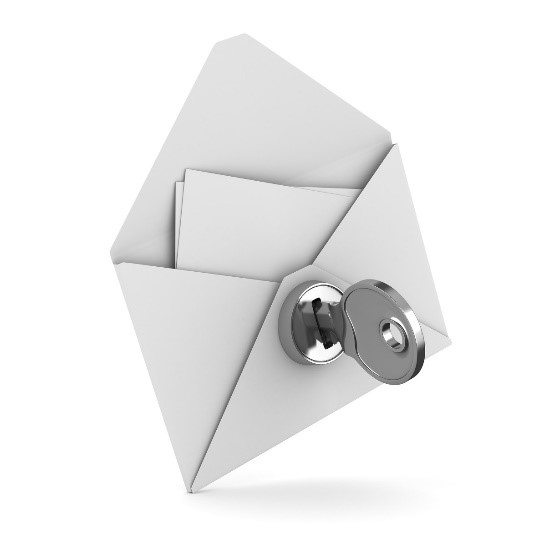Rate this article: 



 (6 votes, average: 3.00)
(6 votes, average: 3.00)




 (6 votes, average: 3.00)
(6 votes, average: 3.00)It may be hard to think about security while you’re writing an email — after all, it’s not like you’re constantly sharing blatantly confidential information through email (at least I hope you aren’t!) like passwords or usernames. However, email security needs to be a top concern, which is why you should use an email encryption certificate.
Many pieces of information are often shared via email — useful bits of info that attackers can use against you. For example:
Admittedly, these types of situations may be a bit uncommon, but that’s not the point. The point is that you may share more information than you realize through email — whether you’re aware of it or not.
An email encryption certificate can help with your email’s security by ensuring that no one but you and your intended recipient has access to its contents. But how? Keep reading to find out.

An email encryption certificate is, in some ways, like an SSL certificate. It’s an x.509 digital certificate that’s used to facilitate encryption. However, the way that an email encryption certificate works is different from an SSL certificate. The first former enables data at rest encryption — the later facilitates data in transit encryption.
Basically, the job of an email encryption certificate is to encrypt your emails so that:
If you don’t know email encryption certificates by their name, that may be due to the various names that people call them: email encryption certificates, email security certificates, S/MIME, and even email SSL certificates (although they are drastically different from each other).
Regardless of what people call them, the term S/MIME (which stands for secure/multipurpose internet mail extension) is their most descriptive name, which can help in understanding how they work.
Email encryption certificates use asymmetric encryption to make sure no one but the sender and the receiver see the message.
Asymmetric encryption works by using two keys — a public key for encryption, and a matching key for decryption. This is similar to how SSL certificates work, which take care of encrypting data through websites.
However, if you’re a small business owner, you’re probably wondering why you should even care about any of this technical mumbo jumbo. Well, I’ve got news for you: there are plenty of reasons why. Let’s explore a few of them.
Having an email encryption certificate can help make your business more attacker-proof. How? Well, since email certificates verify the identity of the sender by providing a signature, you will know that the person sending the email is genuine.
This means that if you decide to incorporate email encryption certificates in the entirety of your business, you will essentially have a closed “network” where every sender is trusted, at least when it comes to emails. As long as no one opens an attachment from an unknown sender or wires $20,000 to a vendor without proper verification, your email should be significantly more secure.
Not only this but if you’re constantly sending emails both in and outside of your company’s network of email addresses, an email certificate will allow for the recipient of your email to know you’re the real deal, as the email will be shown as “signed and secure.”
This not only can this help your email avoid spam filters, but it also demonstrates to your recipients that you’re serious about email security. Given that there have been quite a few breaches that have occurred due to poor email security, I don’t blame them.
Even then, that’s not everything that email encryption certificates have to offer.
Without an email encryption certificate, your email is sent through an unencrypted channel. This means that anyone with the proper know-how can intercept the message and look at its contents. You wouldn’t want competitors looking at your company’s financial documents, right?
That being said, here’s a not-so-fun fact: When you send an email without an email encryption certificate, it also isn’t signed. Seriously! This means that the person who receives the email has no way of verifying whether it truly came from you.
With an email encryption certificate, both of these issues are resolved since the email is automatically signed with your identity as well as encrypted before it leaves your account. Not only this but unlike SSL certificates, email encryption certificates offer end-to-end encryption, which means that the email is encrypted from the moment you hit send until the recipient opens and decrypts the email.
If you’re a small business owner, there’s one more thing that email encryption certificates can help you with: compliance. All businesses are required to have measures in place to protect consumer data, which email certificates do as they encrypt any contents of an email. Many different industry regulations and laws require the use of encryption — or, at least, require information to be encrypted or pseudonymized — for compliance.
If you’ve yet to get an email encryption certificate, what are you waiting for? ComodoSSLStore offers email signing certificates for up to 78% off! To see all the different options available to you as far as email encryption certificates go, click the button below.
![]()
Assert your identity and secure your email data with an email encryption certificate. Prices start as low as $12.95 per year!
Shop Now